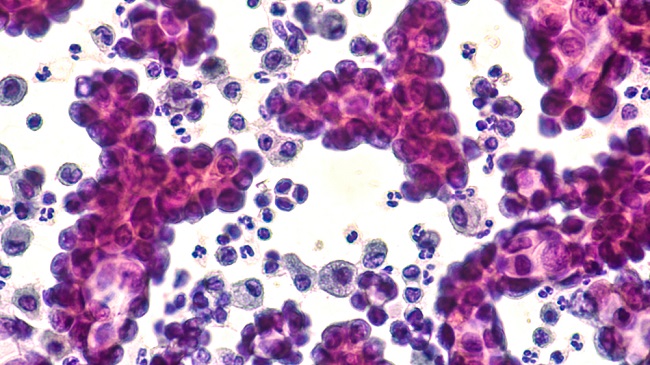
A team of Scottish scientists from the University of Glasgow, Canon Medical Research Europe and the Data Lab, Scotland’s centre for innovation in data and artificial intelligence, have developed an AI-based imaging system that is effective in detecting mesothelioma. This rare form of cancer affects the mesothelial surfaces in the lungs, heart and abdominal cavity. This prototype could potentially revolutionise the way patients are diagnosed and treated in the future.
Scottish mesothelioma research programme
The project, which was launched in 2017, was intentionally focused on mesothelioma, a rare but aggressive malignancy and one of the most difficult to measure with traditional CT scanners. Scotland has one of the highest incidence rates of mesothelioma in the world. Studies suggest that this is due to its shipbuilding industry and the frequent use of asbestos in construction. In this sense, this research programme is funded by the Scottish Government to encourage collaboration between innovation centres, health professionals and health care companies.
The University of Glasgow, Canon Medical Research Europe also three innovation centres, led by The Data Lab in collaboration with the Digital Health and Care Institute (DHI) and Precision Medicine Scotland worked together. The aim was to develop a new technology based on artificial intelligence to support oncologists in their work. The results of their study have beenpublished in a paper detailing their research process.
Kevin Blythe, Professor of Pulmonology at the University of Glasgow, a pulmonologist at the Queen Elizabeth University Hospital and a participant in the research project, said he was aware of the difficulty in understanding and diagnosing mesothelioma. As part of the programme, he is joined by Steph Wright, director of health and wellbeing engagement at the Data Lab and Dr Keith Goatman, a researcher for Canon Medical Research Europe.
A solution incorporating artificial intelligence to diagnose mesothelioma
The software developed by the researchers can detect cancer cells and quantify their presence more effectively than traditional imaging based on the results. The system will be used to speed up the process of diagnosing mesothelioma. Currently, in many cases, mesothelioma is only diagnosed in advanced stages, when treatment options are much more limited and mainly palliative. The results should provide an interesting basis for producing similar tools to assess the most common cancers in the future.
Dr. Keith Goatman, even raises the possibility of using this system to decide on treatments for individual patients:
“Accurate measurements of tumor volume take far too long to be done by hand. […] The speed and accuracy of the AI algorithm could have a huge impact on mesothelioma treatment. […] Automating these measurements will pave the way for clinical trials of new treatments by detecting even small changes in tumor size. Ultimately, it could be used routinely in hospitals to decide the best treatment for each individual.”
About 100 CT scan results that were used to diagnose mesothelioma were used to train the program, which the research team says is now better than humans at recognizing new cancerous tumors. The tool seeks to streamline clinical trials, trying to make them less time-consuming, more accurate and less expensive. To achieve this, further validation work is underway in an international network of accelerators.
Ultimately, this system could be available to help doctors detect mesothelioma on scans during treatment.
Translated from Des chercheurs écossais présentent un système pour accélérer le processus de diagnostic du mésothéliome









